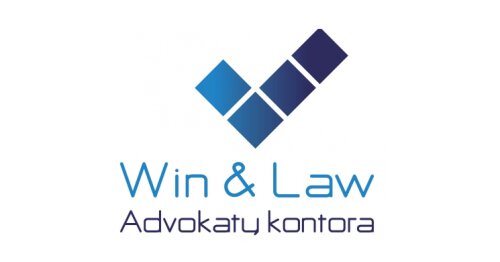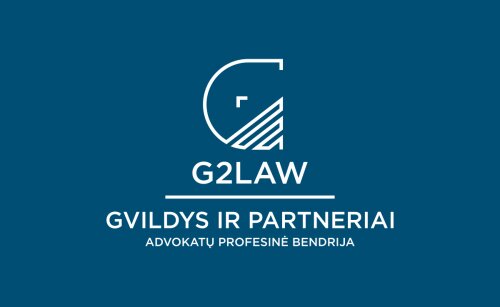Best Native People Lawyers in Klaipėda
Share your needs with us, get contacted by law firms.
Free. Takes 2 min.
List of the best lawyers in Klaipėda, Republic of Lithuania
About Native People Law in Klaipėda, Republic of Lithuania
The Republic of Lithuania, including the city of Klaipėda, acknowledges a rich history involving numerous ethnic groups and national minorities. While Lithuania does not formally recognize the existence of indigenous or native populations in the same way some other countries do, local law provides important protections and rights for ethnic minorities and communities with deep historical ties to the region. These legal frameworks often focus on issues such as language, cultural preservation, education, property rights, and representation within local governance. Understanding Native People in the context of Klaipėda typically means engaging with legislation and policies intended to support the Lithuanian population as well as traditional ethnic minorities, such as Samogitians and others with longstanding regional presence.
Why You May Need a Lawyer
Legal assistance is often vital for individuals and communities facing complex challenges rooted in cultural or ethnic identity within Klaipėda. You may need a lawyer in the following situations:
- Seeking recognition of specific cultural or traditional rights under Lithuanian law
- Facing discrimination or infringements upon your language or cultural freedoms
- Dealing with issues related to the ownership or inheritance of historically significant land or property
- Advocating for the establishment or protection of cultural monuments or sites
- Navigating legal processes related to education in minority or native languages
- Representing your community's interests in municipal or national forums
- Responding to legal disputes concerning religious or community organizations
- Protecting intellectual property related to traditional knowledge, art, or folklore
Experienced legal counsel can help clarify your rights, represent your interests, and ensure compliance with both Lithuanian law and relevant international agreements.
Local Laws Overview
Legal protections for Native People and ethnic minorities in Klaipėda are found in several national and local laws. Notable focus areas include:
- The Law on Ethnic Minorities - This law protects the cultural, educational, and language rights of recognized ethnic groups and ensures nondiscrimination.
- Constitution of the Republic of Lithuania - Provides fundamental rights and freedoms, including the right to maintain and express one's culture.
- International Agreements - Lithuania is a signatory to key treaties such as the Framework Convention for the Protection of National Minorities.
- Cultural Heritage Protections - Specific laws exist to safeguard sites, artifacts, and traditions important to ethnic communities.
- Language Laws - Permit certain forms of educational instruction and public communication in recognized minority languages, subject to regulations.
- Property and Land Rights - Heritage land use sometimes becomes a complex issue, especially when historic claims are made or protected grounds are identified.
These laws are interpreted and applied by local authorities in Klaipėda, with oversight coordinated by relevant ministries and ombudsman services.
Frequently Asked Questions
What groups are considered Native People or ethnic minorities in Klaipėda?
Lithuania generally recognizes ethnic minorities rather than native people as such. Groups such as Russians, Poles, Belarusians, Samogitians, and others with historic roots in the Klaipėda region are acknowledged under minority protection laws.
Is there any legal distinction for indigenous status in Klaipėda?
Lithuanian law does not distinguish between indigenous and non-indigenous populations but offers protections and rights to ethnic minorities based on heritage and community presence.
Can I receive education in a minority language in Klaipėda?
Yes, Lithuanian law provides for minority language education, especially in communities where minorities are present in significant numbers, although the extent and availability can vary.
How can my community protect traditional cultural sites?
You may apply for heritage status for important cultural sites through the Department of Cultural Heritage or municipal authorities, which provides legal protections and support.
Does Lithuania recognize cultural autonomy for Native People?
While full autonomy is not granted, Lithuania supports certain forms of cultural self-governance and has mechanisms for community representation, especially at the local level.
What should I do if I experience discrimination as a member of a minority group?
File a complaint with the Office of the Equal Opportunities Ombudsperson and consider consulting a lawyer to guide you through the process and represent your interests.
Are traditional practices and languages protected in Klaipėda?
Yes, legal frameworks protect minorities' right to maintain and use their traditional languages and cultural practices within defined limits, as provided by law.
How are property disputes involving traditional or heritage lands handled?
These disputes are resolved according to Lithuanian property law, taking into account historical usage and documentation, sometimes requiring court intervention or mediation.
Can a community establish organizations to promote its culture?
Yes, Lithuanian law permits the creation of cultural, educational, and charitable organizations aimed at preserving and promoting minority culture.
Where can I find legal assistance for issues related to native or minority rights?
You can consult private attorneys specializing in minority issues, seek help from legal aid organizations, or contact the municipal legal service in Klaipėda.
Additional Resources
Individuals seeking support or legal advice concerning Native People or ethnic minority issues in Klaipėda may find the following resources helpful:
- Office of the Equal Opportunities Ombudsperson - Handles discrimination cases and provides guidance on human rights
- Department of National Minorities under the Government of Lithuania - Coordinates minority-related policies and programs
- Klaipėda Municipality Legal Consultation Services - Offers guidance for city residents on legal matters
- Legal Aid Service (Valstybės garantuojama teisinė pagalba) - Provides state-guaranteed legal aid, especially for individuals unable to afford private counsel
- Human Rights Monitoring Institute - Non-governmental organization offering information and assistance on human rights issues
- Local Cultural Centers and Minority Community Organizations - Resources for cultural promotion and community support
Next Steps
If you believe you need legal assistance regarding issues related to Native People or ethnic minorities in Klaipėda, consider the following steps:
- Identify the specific issue or challenge you are facing and gather relevant documentation
- Reach out to one of the local legal aid services or consider private legal counsel with expertise in minority or human rights law
- If your case involves discrimination or human rights concerns, contact the Equal Opportunities Ombudsperson
- For cultural or heritage matters, connect with the Department of National Minorities or local cultural centers
- Be prepared to participate in dialogue or mediation, as many issues can be resolved outside of courts through negotiation or community forums
Taking early action and seeking expert guidance improves your chances of successfully resolving legal issues and ensuring your rights and interests are fully protected.
Lawzana helps you find the best lawyers and law firms in Klaipėda through a curated and pre-screened list of qualified legal professionals. Our platform offers rankings and detailed profiles of attorneys and law firms, allowing you to compare based on practice areas, including Native People, experience, and client feedback.
Each profile includes a description of the firm's areas of practice, client reviews, team members and partners, year of establishment, spoken languages, office locations, contact information, social media presence, and any published articles or resources. Most firms on our platform speak English and are experienced in both local and international legal matters.
Get a quote from top-rated law firms in Klaipėda, Republic of Lithuania — quickly, securely, and without unnecessary hassle.
Disclaimer:
The information provided on this page is for general informational purposes only and does not constitute legal advice. While we strive to ensure the accuracy and relevance of the content, legal information may change over time, and interpretations of the law can vary. You should always consult with a qualified legal professional for advice specific to your situation.
We disclaim all liability for actions taken or not taken based on the content of this page. If you believe any information is incorrect or outdated, please contact us, and we will review and update it where appropriate.











